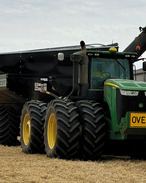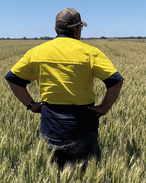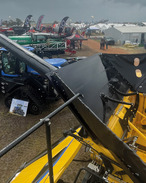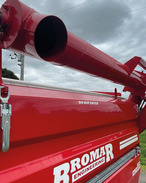This article is 7 years old. Images might not display.
Researchers say it’s because soil compaction under wetter conditions encourages root growth by decreasing permeability, and so improving water storage.
The published research gives a new perspective on soil compaction management, in which it is accepted heavy agricultural machinery can compact surface soil, restricting crop and pasture root growth. This in turn can lead to other effects such as water erosion, dryland salinity and waterway degradation.
The issue of soil compaction costs WA’s agriculture industry an estimated $330 million per year.
As part of their Bachelor of Engineering Honours research, Mr Kyle Bradley, Mr Dane Glenn and Mr Jack Mears investigated root growth in columns of clayey and sandy soil compacted to mimic conditions after the passage of heavy vehicles. Different water contents were used during compaction to produce specific soil microstructures.
The multidisciplinary supervisory team comprised geotechnical engineer Dr Chris Beckett, University of Edinburgh, agricultural engineer Dr Andrew Guzzomi and civil engineer Professor Andy Fourie from UWA’s Faculty of Engineering and Mathematical Sciences, and Institute of Agriculture, and plant scientist Dr David Merritt from the WA Botanic Gardens and Parks Authority.
Dr Beckett said the findings are particularly interesting for the agriculture industry because it means with a simple routine procedure, the optimum conditions for trafficking can be calculated based on soil moisture data.
“The results indicated that the compacted microstructure of soil which encompasses both density and water retention have a significant impact on crop performance,” Dr Beckett said.
“From what we found, driving on the soil when wet may double the growth than if the soil were dry.”
The research is also applicable to mine and municipal waste storage sites, where soil cover systems are used to regulate rainfall infiltration into the stored waste, oxidation and acidification of the underlying material, and greenhouse gas emission.
The findings were published in the paper Compaction conditions greatly affect growth during early plant establishment in the Journal of Ecological Engineering.






















